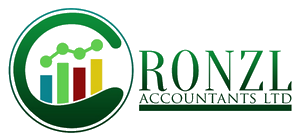Self-assessment system is used by the HMRC to administer and collect tax from taxpayers in the UK.
Most UK taxpayers’ tax is collected at the source, however, some taxpayer under this system have to administer their tax by themselves.
If not administered well, they are given penalties and made to pay interest on unpaid tax.
Set of taxpayers that declare tax under the self-assessment system.
Sole traders and business owners in the UK
Sole traders or individuals that receive income from a trade or profession declare their tax through self-assessment.
It is also possible to be employed and self-employed. Such individuals would have to declare both incomes while submitting their self-assessment returns.
Individuals that are company directors in the UK
Limited companies and small business accountants must submit self-assessment returns.
The main purpose of this is to be able to declare their income from the limited company.
The income could be in the form of salary, benefit in kind, dividend etc.
However, there was a change in this rule for directors that all their other income is taxed from PAYE.
These directors must also not receive any form of income or benefit from the limited company.
This is controversial, so such directors need to ensure they confirm from HMRC before taking such exemptions.

The individual that receives income from Land and Properties in the UK.
This group of taxpayers are individuals that receive income from land or properties in the UK.
There are lots of landlords that still do not declare their rental income.
The compliance on this would be more serious because of the introduction of disallowing the mortgage expenses.
Most landlords will have profit to declare and therefore more unpaid tax.
HMRC, however, introduced a new scheme to help landlords deal with this unpaid tax.
It is referred to as a property let campaign. To read more on the property let campaign, Kindly click.
Individuals that receive capital gains.
These capital gains are received from disposing of capital assets.
These capital gains could be properties, land, shares, business, e.tc.
There are annual exemptions that are applied to gains from the disposal of capital assets.
For the tax year 2019/20, the annual exemption is £11,700.
Individuals that receive income from abroad
Individuals that receive income from abroad that is over £300 in a tax year must declare this income through self-assessment.
If this income has been taxed abroad already, the taxpayer can claim relief for the tax paid.
Individuals that receive income over £100,000.
Taxpayers that receive income over £100,000 in a tax year must submit a self-assessment return.
The main reason is that their personal allowance gets tapered as soon as they reach the £100,000 band.
Individuals that receive income over £50,000 and receive child benefit
Any individual that receives child benefits and receives income over £50,000 will have to submit a self-assessment return.
It’s not joint household income, rather it applies when one of the partners receives more than £50,000.
Individuals that are owing HMRC money through PAYE.
This money owed usually can’t be deducted through PAYE probably because it’s associated with several tax years
Hence, moving them to self-assessment means they can have a payment arrangement in place.
Individuals that receive income from trust and settlement.
Individuals that receive income as a minister of religion.
Conclusion on the self-assessment system in the UK
When an individual falls within any of the self-assessment categories above, they would have to inform HMRC as soon as possible in order to avoid penalties. You can reach out to our Northampton accountants to help you with all your tax needs and issues.
If you would like to read more on self-assessment, kindly click
If you would like to have 30 minutes of a free consultation, Kindly contact us
